by Justin Mckibben | Jan 3, 2018 | Addiction, Addiction Treatment, Donald Trump, Drug Abuse, Drug Policy, Dual Diagnosis, Family, Fentanyl, Inpatient Treatment, Law Enforcement, Mental Health, News, PAARI, Prescription Drugs, Professionals, Recovery, Sobriety, Stigma, Synthetic Drugs

With the beginning of the new year, Palm Healthcare Company is looking forward to helping spread more exciting stories of experience, strength, and hope while also sharing important news stories and exciting new developments that relate to the world of addiction recovery and substance use disorder treatment. As we commit ourselves to another year of fighting alongside thousands of people working toward a better future, we would also like to take some time looking back on all the big moments in 2017 that we shared with our Palm Healthcare Company Blog.
-
President Trump Declares Public Health Emergency: What’s the Plan?
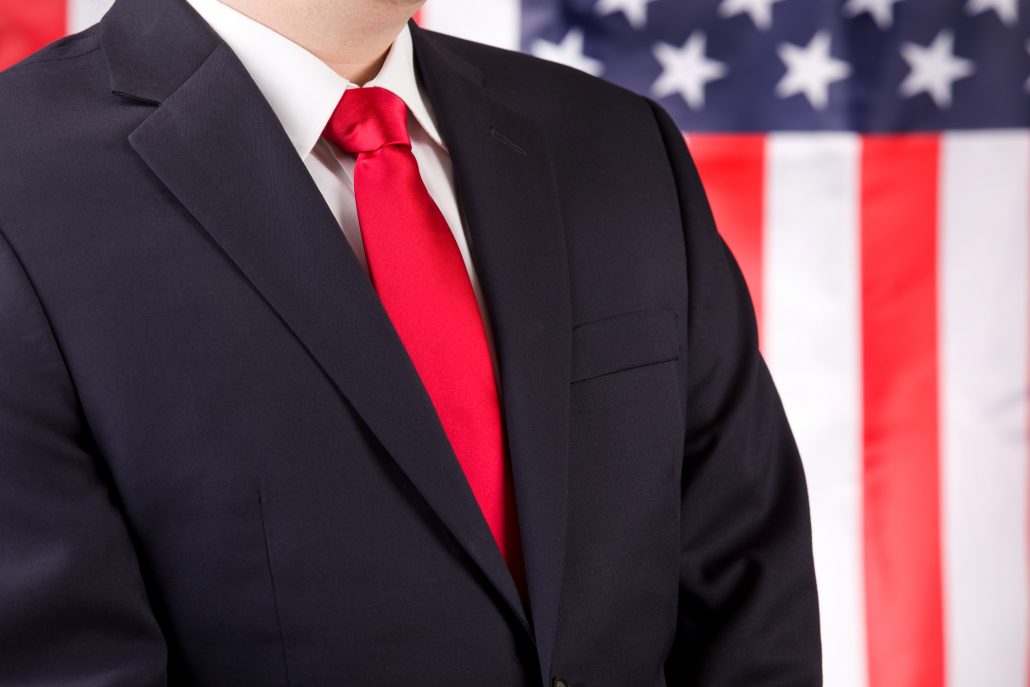
October of 2017, President Donald Trump made an announcement declaring the opioid crisis in America as a Public Health Emergency. This highly anticipated declaration was delivered in a way slightly different than many had expected, noting the technical differences between a Public Health Emergency and a National Emergency.
Many advocates were concerned that this announcement did not provide a concrete foundation for the necessary federal funding and did not initiate much-needed action, but others we assured that this means the Trump administration was taking this issue very seriously. In this article, we took a look at what this announcement did actually accomplish, and what it failed to deliver on.
-
Racketeering for Fentanyl: Opioid Maker Insys Founder Arrested for Bribes
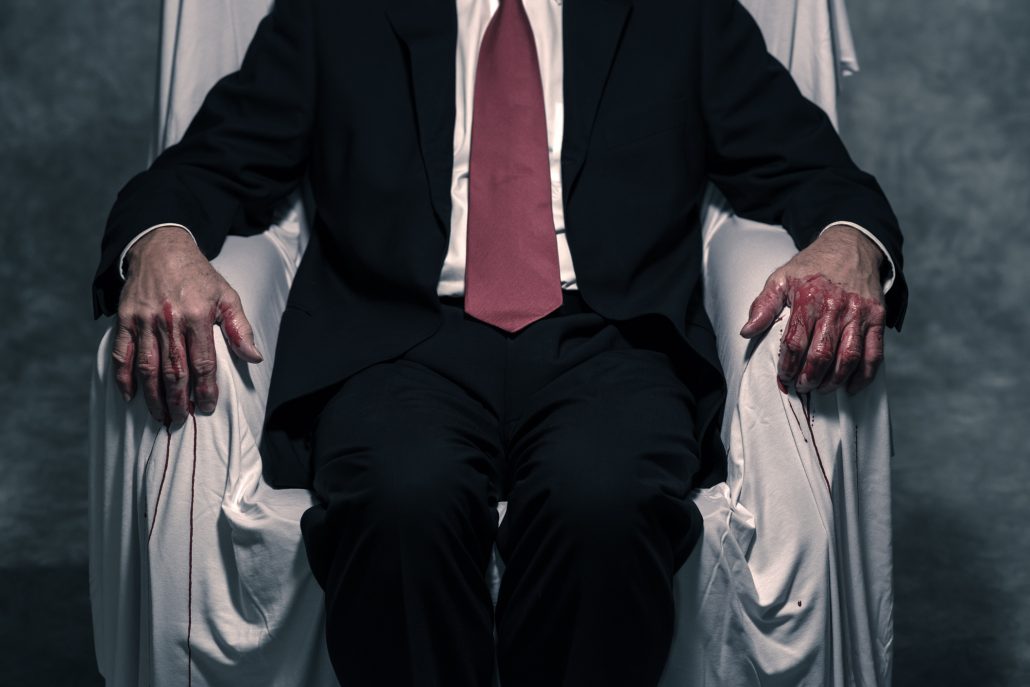
A huge development to another story came in late 2017 when John Kapoor, former CEO of Insys Therapeutics and founding father of one of the most prominent opioid manufacturers in the country, was arrested and charged with conspiring to push the signature drug of Insys Therapeutics, a Fentanyl spray called Subsys, for unacceptable uses through bribes and kickbacks.
The Palm Healthcare Company blog notes how back in 2016 the Justice Department reported to be charging 6 former executives and sales-managers of Insys Therapeutics for conspiring to defraud health insurers.
When looking at the details in this story, it has intensified the conversation about Big Pharma involvement in the epidemic
-
Can Kellyanne Conway Really Compete with the Opioid Crisis?

Not too long after President Trump’s declaration of a Public Health Emergency pertaining to the opioid crisis, Kellyanne Conway was announced as leading the charge on the White House’s efforts for addressing the opioid epidemic.
This Palm Healthcare Company blog saw a lot of comments!
While some find that having a high-profile figure at the head of the efforts gives validity to the White House’s commitment to solving the opioid issue in America, many others are speaking out in frustration. Those in opposition to this appointment say that while she may be useful as a counselor or pollster, she has no experience of expertise when it comes to drug abuse, addiction or substance use disorder treatment.
Thus far the one thing both Kellyanne and the President seem adamant about is a media campaign, but advocates are still afraid this is more “Just Say No” and not enough support for effective resources.
-
After Las Vegas Shooting: PTSD and Mental Health Must be Priority
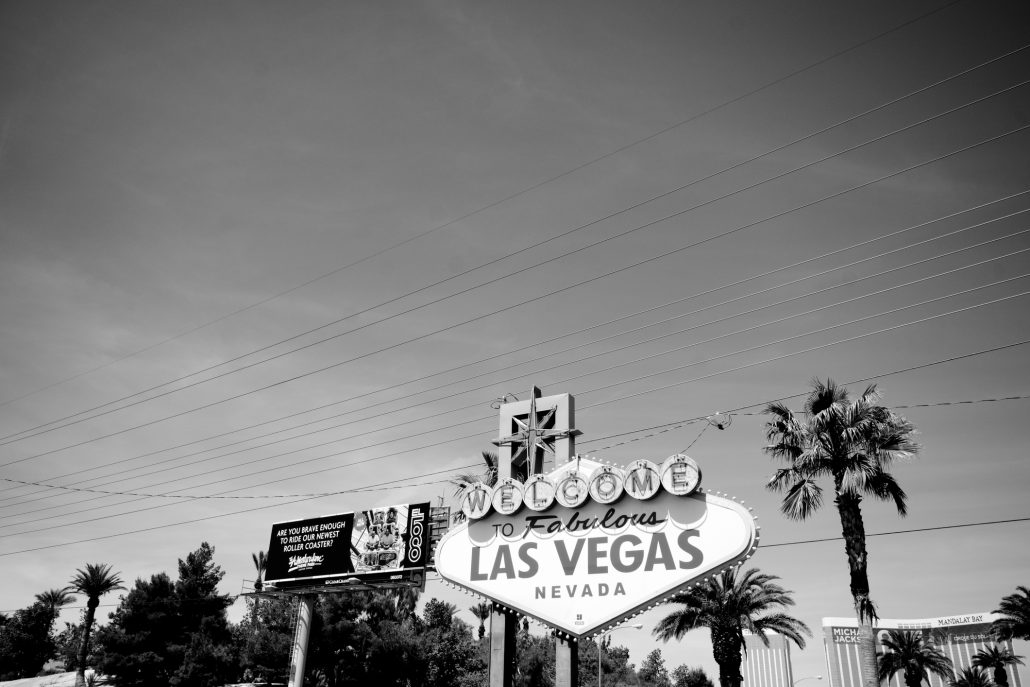
In early October of 2016, the nation was shaken to its core when Las Vegas had one of the deadliest shootings in modern American history. This horrific tragedy flooded newsrooms and live viral footage with the country watching in shock as a gunman killed 58 people and injured 546 more at an outdoor music festival.
In the aftermath of this terrible and heartbreaking incident, our Palm Healthcare Company blog took a look at how such traumatic experiences impact people, and about the importance of those who struggle with Post-traumatic Stress Disorder (PTSD) getting proper diagnosis and care.
At a time when so many people are self-medicating with dangerous or even deadly narcotics, it is important to care for those most vulnerable, especially after such an earth-shattering experience.
-
Police Helping Addicts into Treatment is a Growing Trend Saving Lives

In August of 2017, we took a look back at several programs that had come to light all over the country based on Police Departments working with their communities to offer drug users the chance to get help with addiction treatment instead of being arrested and charged.
The pioneering program came from Gloucester Police Department in Massachusetts back in 2015. This program allowed users to ask police for help, and told addicts they could submit drugs to local law enforcement without fear of being arrested if they were willing to seek treatment. A 2016 study showed that this program was experiencing some impressive success.
Police departments in a number of other states were inspired by this and took up similar programs as a way to help their communities fight the addiction outbreak.
The Palm Healthcare Company blog took a close look at a handful of these programs to celebrate their compassion and success.
-
Sterilized for Cash: This Woman Pays Drug Addicts to Not Have Kids

Pregnant lady’s stomach and her hand holding dollar over black background
When we posted this Palm Healthcare Company blog we saw a great deal of debate in the comments on our Facebook. For over 20 years, Barbara Harris has driven across the country using cash to ask addicted women to give up their fertility. To date, the organization has paid over 7,000 people.
The controversy around such a powerful story had some people showing a great deal of support for someone giving addicted women an incentive to not get pregnant, while other people were appalled and angered that someone would entice desperate women who are not in the right mindset to make such dramatic and life-altering decisions with their bodies.
-
What Chester Bennington Taught Us about Addiction and Depression

(This content is being used for illustrative purposes only; any person depicted in the content is a model)
In July of 2017, the world lost a great artist and inspirational musician with the death of Chester Bennington, the lead singer of the band Linkin Park.
Initial reports were that Bennington had died from suicide by hanging, with later reports indicating that Chester had been drinking at the time of his death. The vocalist had been open about his struggles with depression and drug addiction over the years, and in this article, we took a look at just how much Chester Bennington could teach us about the devastation of depression and addiction.
-
Dear Media, Thank You for Bad Press
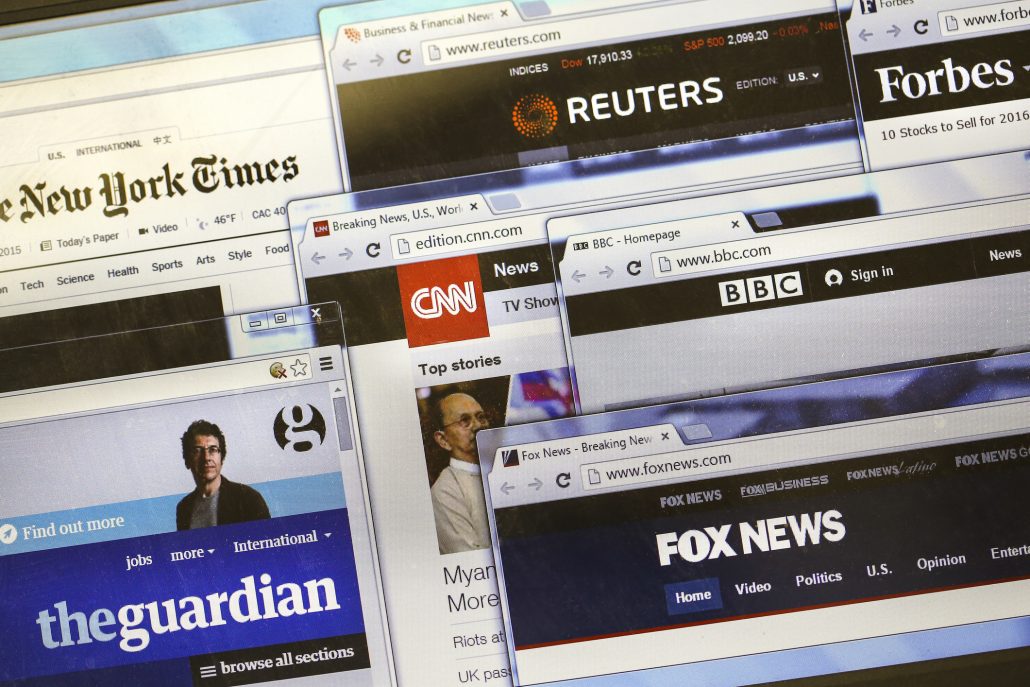
South Florida has been under a great deal of scrutiny recently, specifically concerning the issues facing the recovery community such as unethical and illegitimate sober home operators in the area. In June, there was a Megyn Kelly NBC News Investigation which focused in on Delray Beach, Florida and some of the big problems concerning unscrupulous activities from corrupt individuals exploiting drug addicts in need of help.
We took this time to look over some of the bigger stories concerning the illicit activities in South Florida with the recovery industry while showing support and gratitude for all those working together to try and put an end to operators who are taking advantage of people in need of help.
-
Palm Healthcare Measures Up to Addiction Treatment Outline for EAP
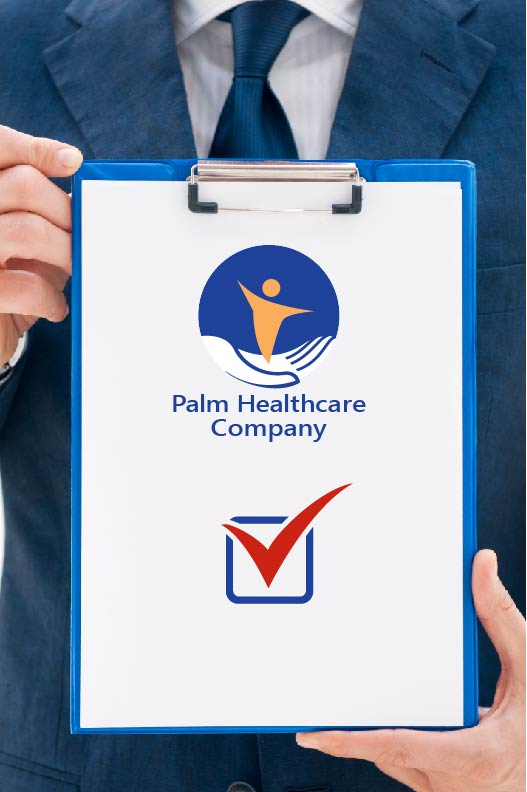
In September of 2017, we took a very close look at an article written by the Journal of Employee Assistance that was designed to help Employee Assistance Programs (EAPs) find the right kind of addiction treatment programs to recommend to their clients.
The outline given for EAPs to find effective and reliable addiction treatment options gives a list of things to look for. The Palm Healthcare Company blog was happy to show off just how all of our facilities measure up to these crucial standards.
Keep an Eye Out for More
Palm Healthcare Company continues to try and share every treatment development, news story or exciting innovation on our blog to not only help more people learn and raise awareness but to offer some perspective and maybe ask some new questions.
Whether it is sports, celebrities, news or politics we are committed to talking about important stories that pertain to drug policy in America, substance use disorder, mental health, and personal wellness. We will continue to touch on the top stories of 2018 to spread the word and hopefully inspire more people to get involved in these crucial conversations.
2017 was an intense, innovative and inspiring year. Here is to hope for 2018.
Holistic addiction treatment means incorporating every aspect of life for each individual with personalized opportunities for lasting recovery. So every bit of information can help anyone make a more comprehensive decision about what kind of recovery plan they want. If you or someone you love is struggling, please call toll-free now.
CALL NOW 1-888-922-5398
by Justin Mckibben | Oct 24, 2017 | Addiction Stigma, Addiction Treatment, Drug Policy, Inpatient Treatment, Mental Health, News, Prescription Drugs
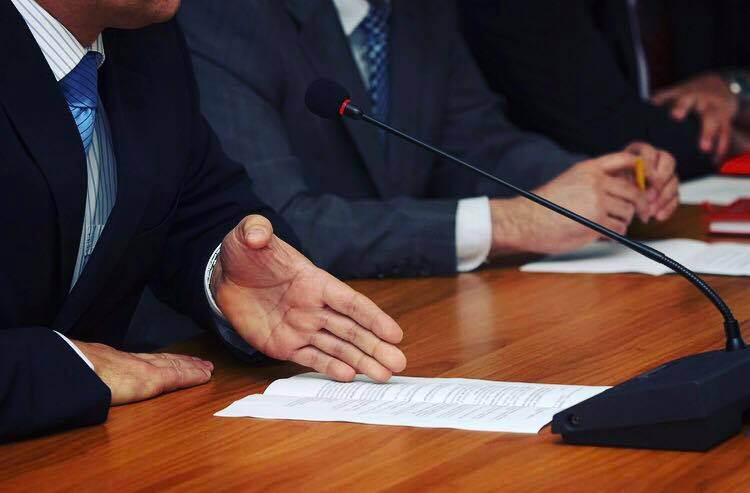
If that headline seems kind of confusing, don’t worry, it should. Technically insurance companies are already required by law to provide the same coverage for substance abuse and mental health that they do for other health conditions… and therein lies the issue.
Back in August the White House Opioid Commission, established by President Trump and led by New Jersey Governor Chris Christie, made several recommendations to the current administration about how to address the current drug crisis as it damages communities across the country. One of those recommendations was to declare a national emergency, while others had to do with options for prevention and education.
In the aftermath of ex-DEA agent Joe Rannazzisi’s eye-opening interview exposing the shady connections between Congress and Big Pharma companies, many have been looking closely at how government officials and multi-billion dollar empires helped create the opioid epidemic. Now the White House’s Opioid Commission is putting a focus on how health insurance companies and the flaws in their policies have contributed to the intensifying addiction crisis.
So with the opioid commission saying they will call-out insurers and make demands on coverage for addiction treatment, will more people have access to help?
Restricted Addiction Treatment
One of the biggest issues the opioid commission seems to have with insurance companies is that frequently their policies only cover one type of addiction treatment and not others. It seems insurance companies are convinced that with a complex and extremely personal issue like substance use disorder or mental health conditions, there is a one-size-fits-all answer. Sadly, most advocates can tell you this isn’t the case.
Something else especially frustrating is that laws already exist to prevent insurers from treating addiction treatment different than any other health issue. Chris Christie himself said,
“Why are we still not seeing addiction services covered, and mental health services covered as broadly as every other type of disease?”
“And what do we need to do to make sure that the law is enforced and followed?”
The Mental Health Parity and Addiction Equity Act of 2008 requires health insurers to treat mental health and substance abuse disorders the same as any other disease. It means they should provide health care coverage for these conditions without additional limits, co-pays or deductibles. If companies add on additional requirements, it creates even more barriers between the suffering individual and treatment. Sadly, not every insurance company thinks it has to play by the rules.
A task force convened by President Barack Obama last year reported that numerous insurance companies still place a number of limits on addiction coverage, like more strict pre-authorization requirements. The insurance companies claim that their policies are only part of a complex problem, insisting that the issue also has to do with shortages of doctors and poor medical training from healthcare providers in the field of addiction treatment.
However, the simple fact that insurance companies are still trying to push back against supporting addiction treatment has the opioid commission ready to address the inconsistencies that are making it even harder for people who need help to get the help they deserve.
Holding Insurance Companies Accountable
The opioid commission is not holding back when it comes to trying to make insurance companies contribute to solutions since they helped contribute to the problem. The New Jersey Governor warned health insurance companies to be prepared for a final report that will “place new demands” on health insurance policies.
Christie and the opioid commission seem to be playing offense, saying Big Pharma drug companies and health insurers profit while allowing an epidemic of addiction to continue, but these new demands will hopefully change all that. Christie added,
“I’m a capitalist. I want everybody to make profits. I think it’s great. But we can’t any longer go about addressing this problem this way,”
“I hope you’re prepared to accept the challenge, because we know if it hasn’t gotten into your own house yet, it could, and then all the sudden your perspective on this problem could become markedly different.”
Not only is there more pressure on insurance companies when it comes to treatment options in their policies, but with how they handle medications in the first place.
Health insurance providers are also under a greater deal of scrutiny for policies that sometimes favor powerful and addictive painkillers over less addictive, and more expensive, variations. So not only are they limiting the options when it comes to getting treatment for substance abuse, but they are limiting coverage of medications to more addictive drugs to save money.
Insurance providers did show up to testify at the commission to help create a more comprehensive view of the issue. Involved were executives from some of the nation’s largest insurance companies:
- Aetna
- Anthem
- Blue Cross Blue Shield
- Cigna
- Harvard Pilgrim Health Care
- Kaiser Permanente
- UnitedHealth Group
- UPMC Health Plan
Representative Elijah Cummings, the ranking member of the House Oversight Committee, also has questions for many of those same companies. Some of these inquiries stem from a report by The New York Times last month stating insurance companies “erected more hurdles to approving addiction treatments than for the addictive substances themselves.”
Cummings wrote letters to seven of the companies which state,
“This is not a hypothetical problem. The over-prescription of opioids leads to addiction and death.”
The White House’s opioid commission has also spoken with leaders in the pharmaceutical industry. All this shows that the opioid commission is not only worried about exploring our options for fixing the issue but also in examining all the elements that helped cause the opioid epidemic in America. Christie says the final report to President Trump will include sweeping recommendations but will also be “extraordinarily instructive in terms of how we got here, which is an important thing for this commission to acknowledge.”
The commission will hold its last meeting November 1st before delivering its final report to the President. Only time will tell what demands this report plans to place on insurance companies to provide more coverage for addiction treatment services.
Will Insurance Companies Change?
The big question becomes how will this impact the services offered by insurance companies. Will the opioid commission’s suggestions help shape new policies, or will some insurance companies continue to ignore the parity laws put in place to make sure they do not discriminate against the treatment of substance abuse?
Will these changes allow for the coverage of different innovative and holistic treatment options, or will the change only support programs that depend on maintenance drugs like methadone or Suboxone?
Hopefully, the new demands being put on insurance companies will help to support mental health and substance abuse parity. When it comes to addressing addiction in America, we need every resource we can get in order to move forward with overcoming the opioid epidemic. With more officials taking a closer look at every aspect of the issue, perhaps we can get a more effective strategy for addressing the problem.
With so many people struggling with opioids and other drugs across the country, comprehensive and effective treatment is essential to making any real progress. For decades Palm Healthcare Company facilities have been providing holistic addiction treatment options that help create lasting change. If you or someone you love is struggling with substance abuse or addiction, please call toll free now.
CALL NOW 1-888-922-5398
by staff | Oct 19, 2017 | Addiction, Celebrity, Internet, Mental Health, News, Social Media
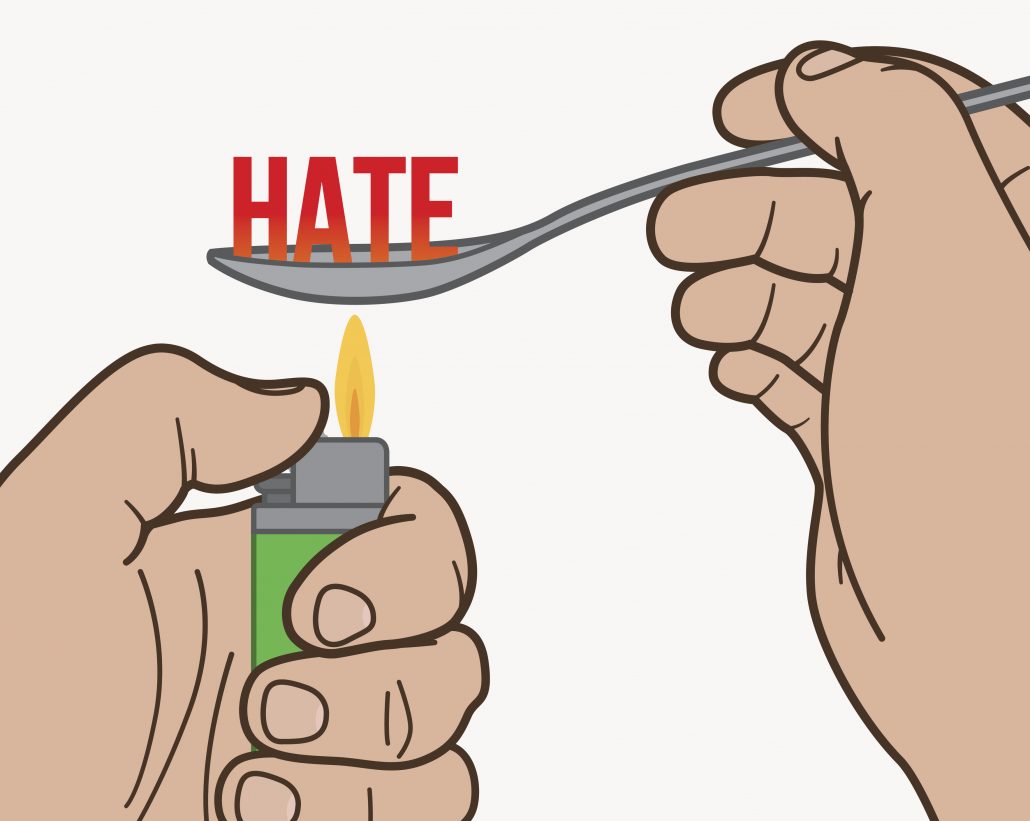
Anyone can see that these are divisive times.
Every day we see another story about protestors, protests against protestors, and counter-protests against those protesting the free-speech of protestors. Various movements drive outrage, and some of the loudest voices today are the most controversial. But are we addicted to it?
Today, the University of Florida in Gainesville is bracing for the impact of another contentious event. Known white supremacist Richard Spencer has been scheduled to arrive today on campus to deliver a speech, promoting his openly racist and radically white nationalist ideals. A guy who seems to have a knack for intentionally stirring up racial tension in public, preaching about ‘peaceful ethnic cleansing’, and waving around tiki torches like nobodies business.
With so many other troubling things happening in America; the ongoing opioid crisis that is killing tens of thousands every year; the debate on gun control following the tragic mass shooting in Las Vegas; the concern over environmental deterioration or the devastation caused by recent Hurricanes to states like Texas and the island of Puerto Rico, doesn’t it seem we already have plenty to argue about?
How do voices like Richard Spencer spark our addiction to the controversy?
White Supremacist Invade Florida
The event is scheduled for this afternoon and will be the first college visit Richard Spencer has made since he and others participated in the “Unite the Right” rally in Charlottesville, Virginia.
The same day where the horrific display of people marching down the streets of an American city with Nazi flags and Ku Klux Klan symbols, many of them armed, clashed with counter-protestors. The same day a young woman was killed when a white supremacist rammed his car into a crowd of anti-racist protestors.
Richard Spencer stood on the side with neo-nazis and klansmen.
Today officials at the University of Florida are worried that this event will also become violent. In fact, the president of the University of Florida, Kent Fuchs, believes Richard Spencer wants there to be violence, hoping it will garner sympathy for the ‘alt-right’ movement he represents. In an interview Fuchs states,
“They’re coming to campus with the intentions of confrontation and with the intention of having all of us repeat their view on the world.”
On Monday Rick Scott, Florida Governor, declared a state of emergency for Alachua County to enable law enforcement to work together more effectively at preventing violence. There has also been the talk of activating the National Guard if necessary.
Of course, Richard Spencer took all this extra precaution as an opportunity to pat himself on the back. He’s alleged to be absolutely flattered by the state of emergency on his behalf.
Hint of Hypocrisy
One thing that always comes to these kinds of conversations is the discussion of people’s first amendment rights. When we get to the topic of whether universities should permit speakers to come to their campus, people always argue that the individual’s freedom of speech should be a priority and that these institutions should allow people who are controversial and divisive to speak, regardless of the harm or outrage caused by their poisonous rhetoric.
In this writer’s personal opinion– (and I know this may sound weird)- I agree with letting people I disagree with have a chance to talk. If we give those we think are wrong a chance to speak, we can engage the conversation and challenge them. If we completely silence all ignorance I think we can’t comprehensively address it.
THAT BEING SAID…
The problem I take with situations like this is hearing that the University of Florida is spending over $600,000 on additional security for this event in order to protect white supremacists. Money coming from taxpayers that could be spent on providing tuitions for who knows how many students.
Of course, this is because UF is a public university, and is therefore prohibited from stopping the event based on the contents or views of the speech. The university provided a permit for Spencer to speak, but the event is unaffiliated with the school, and no student groups sponsored the speech or invited Spencer. Plain and simple, it is an absolute set-up for a huge fall-out. And the university is not permitted to defer the costs of protecting Spencer to him or his alt-right movement.
But I digress…
Perhaps the greatest hypocrisy I see here is that the organizers for Spencer’s speech supposedly will only allow people who look like alt-right supporters to be among the 700 people inside the Phillips Center for the Performing Arts. I can only guess what they look like.
So in essence, Spencer’s right to preach hate on a college campus should be a priority (sarcasm implied), even if the vast majority of students disagree with his oratory… But no one who disagrees with him should be allowed to participate in the dialog?
Our Addiction to Controversy and Outrage
Of course, just participating in this conversation is part of feeding the controversy. Therefore, this article in and of itself is putting the focus on the divisive subjects that push people into radical ideologies and pull communities apart. But the conversation still needs to be had; why are we so addicted to this kind of conflict?
Did you know our neurobiology rewards our outrage? A simple reason we are addicted to the controversy is that our outrage does feel good.
Our anger overrides all other moral and rational constraints in the brain because it originates from our primordial, original limbic system. This is the part of the brain where our most automatic emotions like fear and desire come from.
The limbic system has the most direct links to our fight-or-flight response system. It controls our adrenaline rushes, alertness, and other instincts. Controversy and outrage tap into those instincts and we can become addicted to the rush we experience through the limbic system.
The ego is a primary fuel source for our outrage and our attraction to controversy. Not only do we get a thrill from the debate and a rush from feeling right in a debate, but it is a way we overcome our own feelings.
Anger can be triggered by feelings of insecurity or weakness. Our outrage is a surge of emotion that flows in to overcome those feelings of fragility. So our outrage and immersion into controversy make us feel stronger or superior.
Feeding Our Addiction
Addiction compels you to chase a high that only makes you feel worse; it reduces you to a lesser version of yourself. It seems, however, that Americans are largely addicted to controversy and discord. When you look on social media or watch television it appears evident we are adopting a society that is hooked on hostility and that undervalues empathy.
How did this happen? Simple; More than most drug addicts, our dealers are literally everywhere! The business of controversy is an ugly but lucrative one. Any drug trafficker knows how that is. Many people who dig up every piece of offensive, frightening or infuriating news to publish don’t typically let it bother them in the same way. Especially online in forums, most posters are thrilled to pedal it because they know their addicted customers all too well.
The drama-dealers know they’re making us feel a thrill of uncertainty or weakness, while simultaneously making us feel stronger and better-than.
True Strength is in Unity
The truth is, being ‘right’ or debating better than others doesn’t make any of us stronger. Our true strength comes not from our addiction to being smarter or superior in any way. ‘Alt-right’ is not the future, it is a reprehensible and sectarian atrocity that should not be given even a finite measure of merit. But people will thrive off of the discourse it will create.
Contrary to the garbage Richard Spencer will spew about diversity being an evil and an unnatural threat to the supremacy of the white race, diversity, and unity despite our differences is what gives us true strength. It almost seems ridiculous that as adults we still have to keep arguing this point. Our nation has a very sordid past, but we are better for admitting it and trying to do better.
People like Richard Spencer, feed on the fear, weakness, insecurity and false strength created by their archaic and disgraceful controversy. This is not strength, it is pure exploitation of their own people in a callous attempt at prestige. Spencer is another dealer, committed to trafficking in racism, fascism, and discontent. Like any other heroin or crack dealer.
Student leaders from the University of Florida have been planning events using #TogetherUF to promote education and dialog while encouraging unity and embracing diversity. Hopefully, these collective efforts to pull people together can counter-balance the separation Spencer and his followers hope to create.
It is with great hope that the campus and its students remain safe, as thousands have already committed to marching in protest of Spencer and his movement.
“Our true nationality is mankind.”
-H.G. Wells
Palm Healthcare Company believes everyone from every culture or community deserves a chance to be happy and healthy. We embrace the unity of our staff, our clients and our community towards building better futures for all of us. We know addiction does not discriminate, and we are here to help. If you or someone you love is struggling, please call toll-free now. We want to help.
CALL NOW 1-888-922-5398
by Justin Mckibben | Oct 13, 2017 | Depression, Dual Diagnosis, Mental Health, Mental Health Stigma, Panic Disorder, Post-traumatic Stress Disorder, Recovery, Suicide, Therapy, Veterans
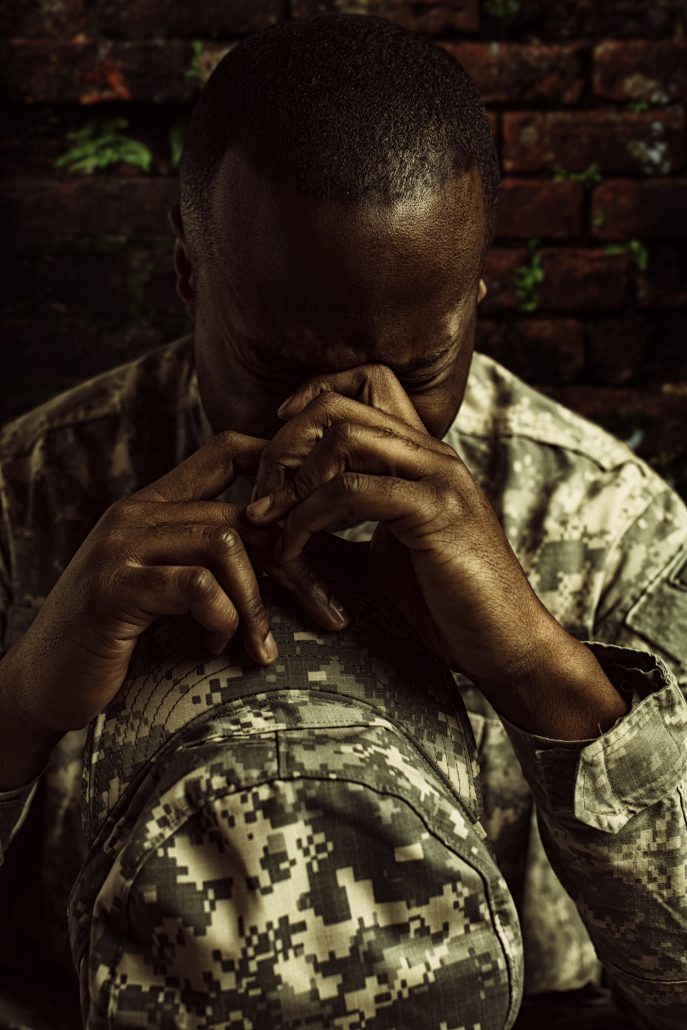
(This content is being used for illustrative purposes only; any person depicted in the content is a model)
When we talk about fighting the addiction problem in America and better understanding substance use disorder, we have to acknowledge those who are at a specific risk for suffering from substance use. Far too many American soldiers come home only to fight another devastating, heartbreaking battle.
With addiction being considered a mental health issue, it should be clear the contribution of overall mental health makes to causing substance use disorder (SUD) in many cases. Depression, bipolar disorder, generalized anxiety disorders and post-traumatic stress disorder (PTSD) are all mental health issues that often associated with addiction.
Some of those susceptible to mental health disorders and substance abuse are those who fight for the safety and freedom of our country; our Veterans. So we need to acknowledge the mental health issues that the men and women who sacrifice everything for this nation are suffering through. We need to talk about how to best understand these conditions, and how to best treat those in need.
Veteran Mental Health Disorder Statistics
According to the RAND Center for Military Health Policy Research:
-
20% of Veterans who served in either Iraq or Afghanistan suffer from either major depression or PTSD
-
5% of Veterans in these two categories have suffered a traumatic brain injury
According to the U.S. Department of Federal Affairs:
-
More than 2 out of 10 veterans with PTSD also suffer from SUD
-
In the wars in Iraq and Afghanistan, about 1 in 10 returning soldiers seen in VA have a problem with alcohol or other drugs.
-
Almost 1 out of every 3 Veterans seeking treatment for SUD also has PTSD.
-
War Veterans with PTSD and alcohol problems tend to be binge drinkers.
-
Among all U.S. adult deaths from suicide, 18% (7,403) were identified as Veterans of U.S. military service
Probably one of the most troubling statistics comes from a study by the Substance Abuse and Mental Health Services Administration (SAMHSA) which tragically revealed:
Only 50% of returning vets who need veteran mental health treatment will receive these services.
That is an extremely troubling number. It says a lot about how Veterans are struggling to get the help they need when you realize that only around half of them ever get it.
Veterans and Substance Abuse
One of the hardest issues to address when examining the veteran mental health issue is substance abuse and SUD. It is also one of the most important aspects of Veteran mental health treatment that need to be acknowledged.
The National Institute on Drug Abuse (NIDA) reports that substance abuse among veterans is strongly connected to their experiences in combat and how they struggle to cope with these traumas. Various NIDA studies indicate that:
-
25% of Veterans returning from Iraq and Afghanistan showed signs of SUD
-
In 2008, active duty and veteran military personnel abused prescription drugs at a rate that was more than twice the rate for the civilian population
-
In 2009, the VA estimated that around 13,000 vets from Iraq and Afghanistan suffer from alcohol dependence syndrome and require veteran mental health treatment for this problem.
PTSD and SUD
A lot of people, even those who are not Veterans but have experienced great trauma, use substances to self-medicate and deal with PTSD. Even for those who have never had an issue with substances or may never have even used substances, PTSD increases the risk an individual can develop a drinking or drug problem or SUD.
To make matters worse, PTSD and SUD can likely lead to other problems in life, including health. These Veteran mental health issues can often be associated with:
Ultimately, using drugs or alcohol in combination with PTSD might seem to make things easier, but will actually make them a lot worse. It creates a vicious cycle of numbing and re-traumatizing.
Better Treatment for Veteran Mental Health and Addiction
Many advocates for Veteran services, including the National Veterans Foundation (NVF), believe:
- More funding needs to be allocated for Veteran mental health care services so that every veteran has easy access to this type of care.
- Excessive wait times at local VA facilities need to be addressed in order to grant people the access they need to these services.
The NVF website states:
“We can no longer look the other way or continue to underfund the mental health care system that our veterans use.”
This should absolutely be a priority. Strengthening the system that provides mental health care not just to citizens who are suffering, but to our vets who have given so much and desperately need help, is crucial to saving lives from substance use disorder.
Not only does Palm Healthcare Company understand the importance of providing quality addiction recovery treatment, but we also know how important dual diagnosis treatment is for those who suffer from serious mental health conditions like PTSD or major depression along with addiction. Better treatment means addressing both conditions simultaneously, to help the individual heal holistically.
Palm Healthcare Company also knows how important it is to help those first responders and Veterans that put their lives on the line every day. That is why we are a proud sponsor of the Harrigan Foundation’s Annual Run to the Rescue 5K to raise money for the treatment of first responders and veterans.
To find out more about this event, visit the link here:
Harrigan Foundation’s Annual RUN TO THE RESCUE 5K
Mental health care and addiction treatment for vets is an important resource that can save lives and our veterans put their lives back together after experiencing trauma and hardship that causes PTSD and the devastation of substance abuse. If you or a loved one is struggling, you don’t have to fight alone. Please call toll-free now.
CALL NOW 1-888-922-5398
by Justin Mckibben | Oct 6, 2017 | Anxiety Disorder, Death, Depression, Dual Diagnosis, Mental Health, Mood Disorders, Prescription Drugs, Recovery

There are many national observances every month, all year round, that remind us of issues that may not always be on the forefront of our minds. These issues are typically not something everyone will put much thought into each day, but when we pause to acknowledge them for a few days at a time we may realize these are real problems that affect real people every single day. Some of these issues go unseen, like mental health disorders. One of these observances for the month of October is National Antidepressant Death Awareness Month.
If you never realized this was an actual observance, then that is kind of the point. The fact that this is enough of an issue to acknowledge for one month out of a year should speak volumes. The fact a lot of people don’t even realize it is happening says a lot too.
Let us be clear: this article is NOT to discredit or denounce the use of antidepressant medications. It is simply to acknowledge the importance of awareness and education.
So what does this observance mean?
#AntidepressantDeathAwarenessMonth
The purpose of National Antidepressant Death Awareness Month is to remember those who have been injured or killed as a result of antidepressant use. Part of this commemoration is to urge people to always report any adverse reactions while taking any drugs to the FDA, especially in cases that end in death. Depression is a common mental health disorder in the United States. In fact, recent data shows:
- More than 300 million people suffer from depression globally
- Approximately 16 million adults in the US had at least one major depressive episode in 2012
- Depression is the leading cause of disability worldwide
- 11% of adolescents have a depressive disorder by age 18
- 10%-20% of new moms will experience postpartum depression
- 30% of college students report feeling depressed enough it disrupted their performance in school
- 50% of Americans with major depression don’t seek treatment
Needless to say, depression is a prominent condition that impacts a lot of people across America. So of course, antidepressant medications are a valued resource in mental health treatment. However, excessive use of antidepressant medications or dependence on these drugs can lead to some devastating consequences.
Too often people joke about needing to “pop a Prozac” or “borrow a Zoloft” to relax, but these medications are nothing to play around with.
Antidepressants and Suicide
In 2016 reports came out about a suicide epidemic in America. According to the World Health Organization suicide was the 3rd leading cause of death in 2015, representing a 60% increase worldwide over 45 years! A report from the Center for Disease Control and Prevention (CDC) found an estimated 9.3 million adults in the United States (3.9% of the adult population) reported having suicidal thoughts in that past year.
With such shocking statistics, researchers decided to examine data on suicides and the antidepressants associated with some cases. Of most of the medications the most disturbing revelations were those for:
- Selective Serotonin Reuptake Inhibitors (SSRIs)
- Serotonin-norepinephrine Reuptake Inhibitors (SNRIs)
The review revealed that these antidepressants actually seemed to double the rate of suicide and aggressive behavior for adolescents and young people under the age of 18.
So drugs intended to treat depression actually increased risks of harmful side-effects. But even more disheartening is the fact the Big Pharma companies behind these medications were documenting “serious underestimation of the harms.” Meaning they believe drug makers misreported their findings from case studies. In many cases, researchers concluded more serious side-effects were being recorded as something else.
Side-Effects of Antidepressants
Antidepressant drugs can be very useful, but they are still drugs and should always be taken seriously. Not only can antidepressants be detrimental to emotional stability, but they cause various physical side-effects as well.
Some of the more common side-effects of antidepressants include:
- Anxiety
- Agitation
- Blurred vision
- Constipation
- Dizziness
- Nausea
- Increased appetite
- Weight gain
- Sexual dysfunction
- Fatigue
- Insomnia
- Dry mouth
- Irritability
There are other more serious health concerns that certain antidepressant drugs can contribute to as well, including:
Depending on the particular substance, some of these adverse effects of symptoms may differ. One should always speak with their doctor about the possible adverse effects of any medication and be sure to discuss all treatment options.
Be sure to consult your doctor before discontinuing any medications as well. Some of these medications can cause adverse effects when abruptly discontinued. Again, the point of this conversation is not to scare anyone away from antidepressant medications; it is simply to encourage anyone who may be taking these kinds of medications to be aware and make informed decisions with the help of your doctor.
Antidepressant Dependence
The connection between antidepressants and addiction isn’t as clear as other drugs. Doctors still debate the addictive nature of antidepressant medications, with most considering them non-addictive. However, it is possible to develop a dependence on antidepressants.
Antidepressant medications alter the brain’s chemical activity. So a lot of people use antidepressants excessively because they feel like they cannot function normally unless chemical changes in their brain activity take place. So while antidepressants may not be as addictive as other narcotic medications, people can depend on the drug to feel ‘normal’.
Antidepressant dependence commonly forms in people who never needed the drug for medical reasons. Some people receive an incorrect diagnosis of depression and thus end up on antidepressants. According to one study, doctors misdiagnosed almost 2/3 of patients with depression and prescribed unnecessary antidepressants. Still, others will abuse antidepressants for a psychostimulant-like effect.
The use of the drugs also becomes even more dangerous when combined with alcohol. People suffering from addiction to other drugs, including alcohol, also run a higher risk of abusing their antidepressants.
Combining alcohol and antidepressants can cause problems such as:
- Worsened depression or anxiety
- Intense sedation
- Dangerously high blood pressure
- Impaired coordination
- Overdose
Abuse of antidepressants can lead to overdose. Symptoms of antidepressant overdose often include:
- Impaired coordination
- Confusion
- Fainting
- Uncontrollable shaking
- Dizziness
- Irregular heartbeat
Safety before Stigma
Of course, no one should ever be afraid or embarrassed about taking an antidepressant medication. That kind of assistance can be an essential piece of someone’s balance in life, and there is no judgment.
In the realm of recovery from drug or alcohol addiction, it is important for people to understand the difficulties that others may face and accept that medical assistance might be necessary for some people to safely and comfortably grow while letting go of other dangerous substances. As long as people are willing to be mindful of how a medication effects them and take appropriate steps to protect themselves, recovery with the help of antidepressants is absolutely possible.
Approximately one in every eight adults in America take antidepressants, which are among the most commonly used medications. These medications can be life altering and important to overall health, but they must be taken seriously. This month we remember all those who have suffered through depression and been adversely affected by antidepressants. We remember those who lost their lives due to complications related to antidepressant medications, and we strive for better understanding and use of these medications to preserve lives.
Abusing prescription medications like antidepressants is extremely dangerous, and if you are trying to overcome an addiction or mental health disorder this can put you in even more danger. Getting the right kind of treatment can make all the difference. If you or someone you love is struggling, please call toll-free now.
CALL NOW 1-888-922-5398
by Justin Mckibben | Oct 5, 2017 | Coping Skills, Death, Drug Abuse, Dual Diagnosis, Mental Health, Panic Disorder, Post-traumatic Stress Disorder

Just this past Sunday the nation saw one of the deadliest shootings in modern American history in Las Vegas. This immense and indescribable tragedy shocked the world as news reports and live footage filled the airwaves after a gunman opened fire with high-powered rifles at an outdoor music festival. At this point there are at least 58 dead and over 520 wounded, making it the deadliest mass shooting in recent history.
The heartbreak and weight of this tragedy truly cannot be put into words. The unimaginable loss is without parallel. Beyond those who lost their lives in such a senseless act of violence, the impacts this event has had on countless friends, families and loved ones are unfathomable.
In the aftermath of the Las Vegas shooting, mental health must be a priority. How we address and protect the psychological well-being of every American must be a very serious part of the conversation. We have to take a close look at how we are facing mental health, and support those who have been traumatized in the wake of such horrific events.
PTSD of Mass Shootings
The risks of post-traumatic stress disorder (PTSD) is extremely elevated in situations like this. Research on mass shootings is not extensive but is sufficient enough to allow for some preliminary conclusions. One study examined 15 mass shooting events to review consequences of the incidents upon survivors. From these studies conclusion, researchers stated:
- Prevalence of post-disaster diagnoses (predominantly PTSD) in these studies ranged from 10% to 36%
- Much higher percentages reported sub-threshold PTSD
- Very few participants reported no symptoms
One 1994 study in the American Journal of Psychiatry shows that in the acute post-disaster period:
- 20% of the men met criteria for PTSD after a mass shooting
- 36% of the women met criteria for PTSD
The same study looked at those with post-disaster PTSD who also met criteria for another post-disaster psychiatric diagnosis, especially major depression. They found:
- One-half of the women met the criteria
- One-fourth of the men met the criteria
Experts say most people will recover fully from post-disaster PTSD within 6 to 16 months, but most still emphasize the importance of support.
Not only can those present at the tragedy be affected directly, but also those not present but connected to the location or individuals present can be affected vicariously. You don’t have to experience something so horrifying first-hand to suffer a severe impact. An attack like this can have deep emotional effects on those who witness the event, or even for those all over the world following the story.
Understanding PTSD
Part of dealing with the residual effects of tragic events and disasters is to understand how conditions like PTSD can impact people. PTSD can result in emotional, physical and even cognitive issues that some people may not know how to recognize or cope with.
Emotional Effects of PTSD Include
- Shock
- Terror
- Irritability
- Blame
- Anger
- Guilt
- Grief or sadness
- Emotional numbing
- Helplessness
- Loss of pleasure derived from familiar activities
- Difficulty feeling happy
- Difficulty experiencing loving feelings
Physical Effects of PTSD Include
- Headaches
- Fatigue
- Exhaustion
- Insomnia
- Startle response
- Cardiovascular strain
- Increased physical pain
- Reduced immune response
- Gastrointestinal upset
- Decreased appetite
- Decreased libido
Cognitive Effects of PTSD Include
- Decreased concentration
- Confusion
- Impaired decision making
- Disbelief
- Dissociation
- Nightmares
- Impaired Memory
- Decreased self-esteem
- Reduced self-efficacy
- Self-blame
- Intrusive thoughts/memories
- Anxiety
All of these things can cause other more personal issues. Some will experience difficulty with intimacy or social relationships. Isolation and alienation can develop at work, at school or even at home.
According to PTSD United, a nonprofit organization dedicated to providing support and resources for those suffering from PTSD:
- 70% of adults (approximately 223.4 million people) in the US have experienced some type of traumatic event at least once in their lives.
- Up to 20% of these people go on to develop PTSD.
- Approximately 44.7 million people today either have struggled or are struggling with PTSD.
With PTSD, a lot of people actually turn to drugs or alcohol to self-medicate. Some will rely on substances as a form of relief when PTSD brings feelings of isolation or depression. However, as people try to numb or distract themselves from these feelings, they tend to create more problems through substance use.
Often times, the substances only fuel feelings of isolation, depression or anxiety.
Make Mental Health a Priority
This week, October 1 through October 7, is Mental Illness Awareness Week. There is no time like the present to discuss the current state of mental health across the country. Now is always the time to advocate for better support, services, and acceptance when discussing mental illness and mental health in America.
According to the National Institute of Mental Health (NIMH):
- 9% of all U.S. adults (43.4 million)qualified as having mental health issues in 2015
- Approximately 20-21% of incarcerated Americans have a “recent history” of mental health issues
- 70% of young people caught up in the juvenile justice system have at least one mental health issue
- 46% of people living in homeless shelters live with severe mental health issues and/or substance use disorders (SUDs)
In the aftermath of such profound tragedy like the recent shooting in Las Vegas, or even natural disasters like recently with Hurricane Irma or Hurricane Maria, there should be a very direct conversation about mental health. We should also work diligently to ensure that while the world grapples with opioid addiction and drug abuse, that more people don’t turn to self-medicating to fight feelings of loss, terror or alienation.
For all survivors of recent tragedies, or those affected indirectly, there are ways to take care of yourself and monitor your own mental state. Make your own mental health a priority. Protect yourself from destructive behaviors, and reach out for help in the wake of such emotionally compromising events as what happened in Las Vegas.
The national crisis hotline also offers confidential and free services 24/7/365 Call (775) 784-8090 or text ANSWER to 839-863
Our hearts and prayers go out to all those touched by this tragedy.
If you or someone you love is struggling with trauma, don’t let substance abuse make it all even worse. Drugs or alcohol are not the answer. There is real help out there. Please call toll-free now.
CALL NOW 1-888-922-5398















